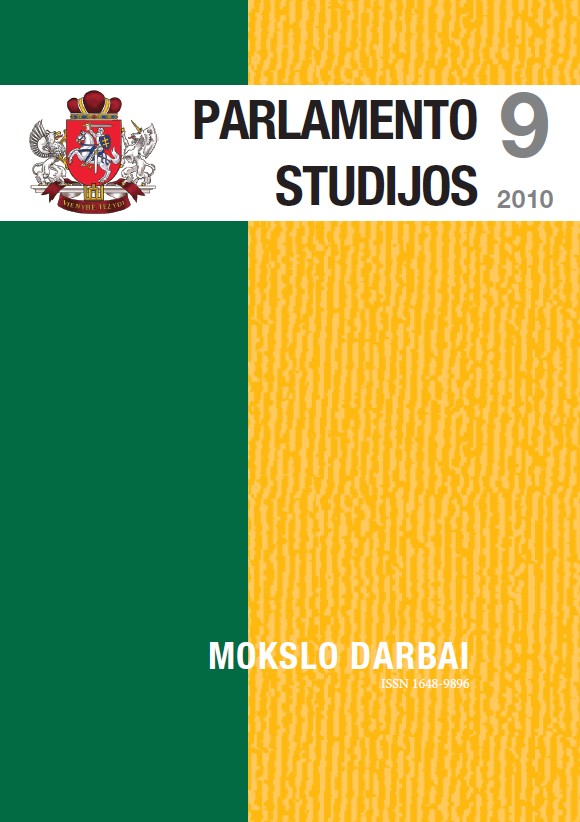The Constitutional Grounds for Limitation of the Powers of the Seimas: Some Theoretical Aspects
DOI:
https://doi.org/10.51740/ps.vi9.321Keywords:
Seimas, the Constitution, interpretation of the Constitution, the principle of separation of powers, the constitutional provisionAbstract
The Seimas is the representation of the Nation, through the laws adopted by the Seimas the will of the Nation gains the form of the state will. The sovereign power of the Nation is not absolute, the Seimas is bound by the Constitution in its activity. The Constitution is composed not only of its text, but also of norms and principles, it has not only the letter, but also the spirit. The Constitution is a harmonious system of provisions, all provisions of the Constitution are harmonised with one another, there are no conflicts between separate provisions of the Constitution, there are no gaps in the Constitution. The Constitution is to be interpreted only on its own grounds, it is not allowed to interpret the Constitution on the grounds of laws or other legal acts, since the supremacy of the Constitution would thus be denied. In Lithuania, state authority is organised on the basis of the principle of separation of powers. This principle inter alia means that: the legislative, executive and judicial powers must be separated, sufficiently independent but also there must be a balance among them; the Constitution established the competence to every institution of state power corresponding to its purpose; the concrete content of a state institution depends on the place of the state power (to which this institution belongs) in the entire system of branches of power and its relations with other branches of power, and on the place of the institution among other institutions of power as well as the relation of its powers with those of other institutions; after the powers of a concrete branch of state power have been directly established in the Constitution, then a certain institution of state power may not take over the said powers from another state institution, it may not transfer or waive them; such powers may not be changed or limited by means of a law. If the Constitution provides that certain relations are regulated by means of a law, thus, such relations may be regulated only by means of a legal act which has namely the form of a law, and it is not permissible to regulate such relations by Government resolutions or other acts of the executive. In such a case all the most important elements of legal relations must be regulated (established) by means of a law, whereas Government resolutions might establish only the procedure for implementation of the laws. The practice of the Constitutional Court discloses the fact that laws and other legal acts adopted by the Seimas are often recognised as being in conflict with the Constitution precisely because of violation of the principle of separation of powers.








 The metadata of the scholarly journals and publications of the Lithuanian National Martynas Mažvydas Library is distributed by
The metadata of the scholarly journals and publications of the Lithuanian National Martynas Mažvydas Library is distributed by 